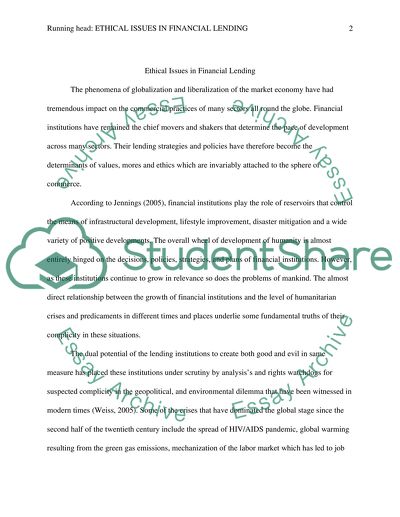Cite this document
(The Phenomena of Globalization and Liberalization of the Market Econom Case Study, n.d.)
The Phenomena of Globalization and Liberalization of the Market Econom Case Study. Retrieved from https://studentshare.org/finance-accounting/1574680-ethical-issues-in-financial-companies-lending-practices
The Phenomena of Globalization and Liberalization of the Market Econom Case Study. Retrieved from https://studentshare.org/finance-accounting/1574680-ethical-issues-in-financial-companies-lending-practices
(The Phenomena of Globalization and Liberalization of the Market Econom Case Study)
The Phenomena of Globalization and Liberalization of the Market Econom Case Study. https://studentshare.org/finance-accounting/1574680-ethical-issues-in-financial-companies-lending-practices.
The Phenomena of Globalization and Liberalization of the Market Econom Case Study. https://studentshare.org/finance-accounting/1574680-ethical-issues-in-financial-companies-lending-practices.
“The Phenomena of Globalization and Liberalization of the Market Econom Case Study”. https://studentshare.org/finance-accounting/1574680-ethical-issues-in-financial-companies-lending-practices.


